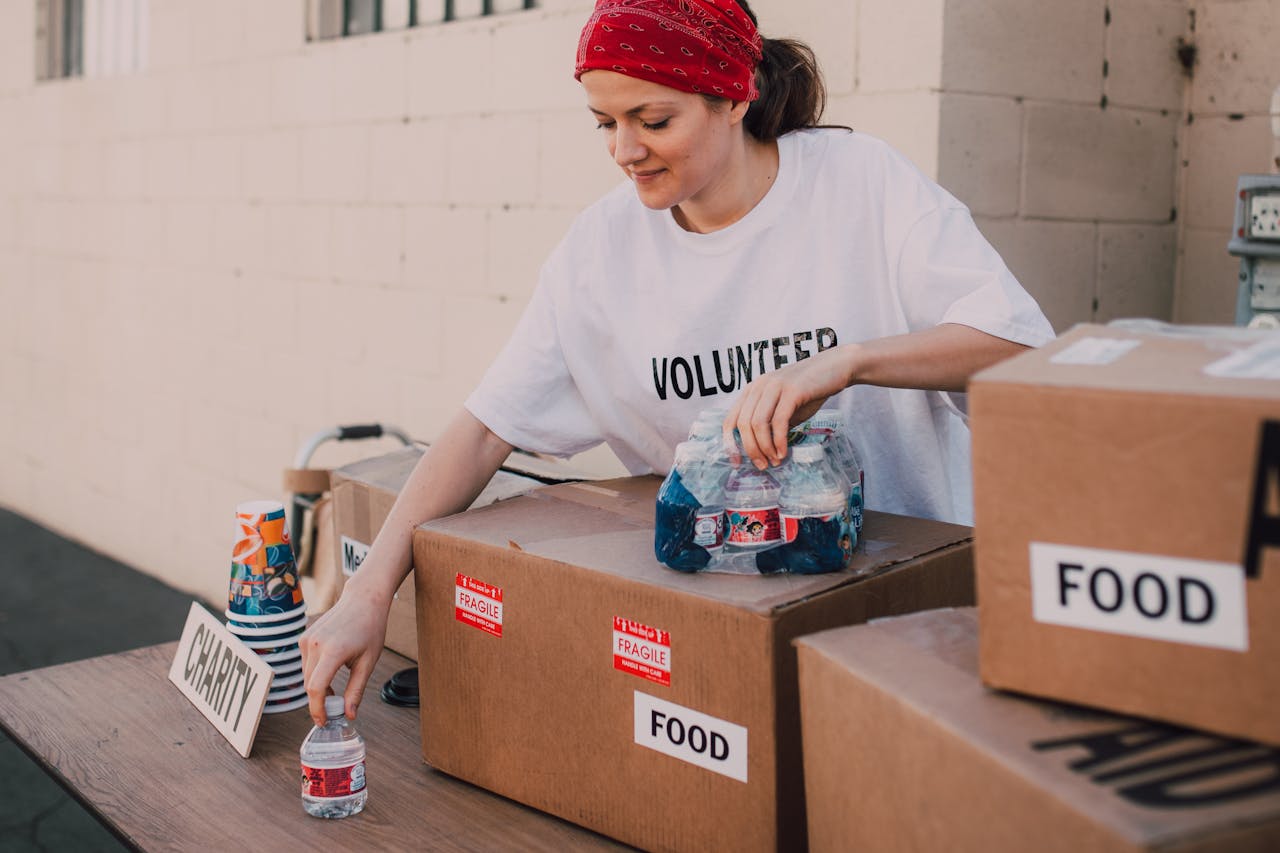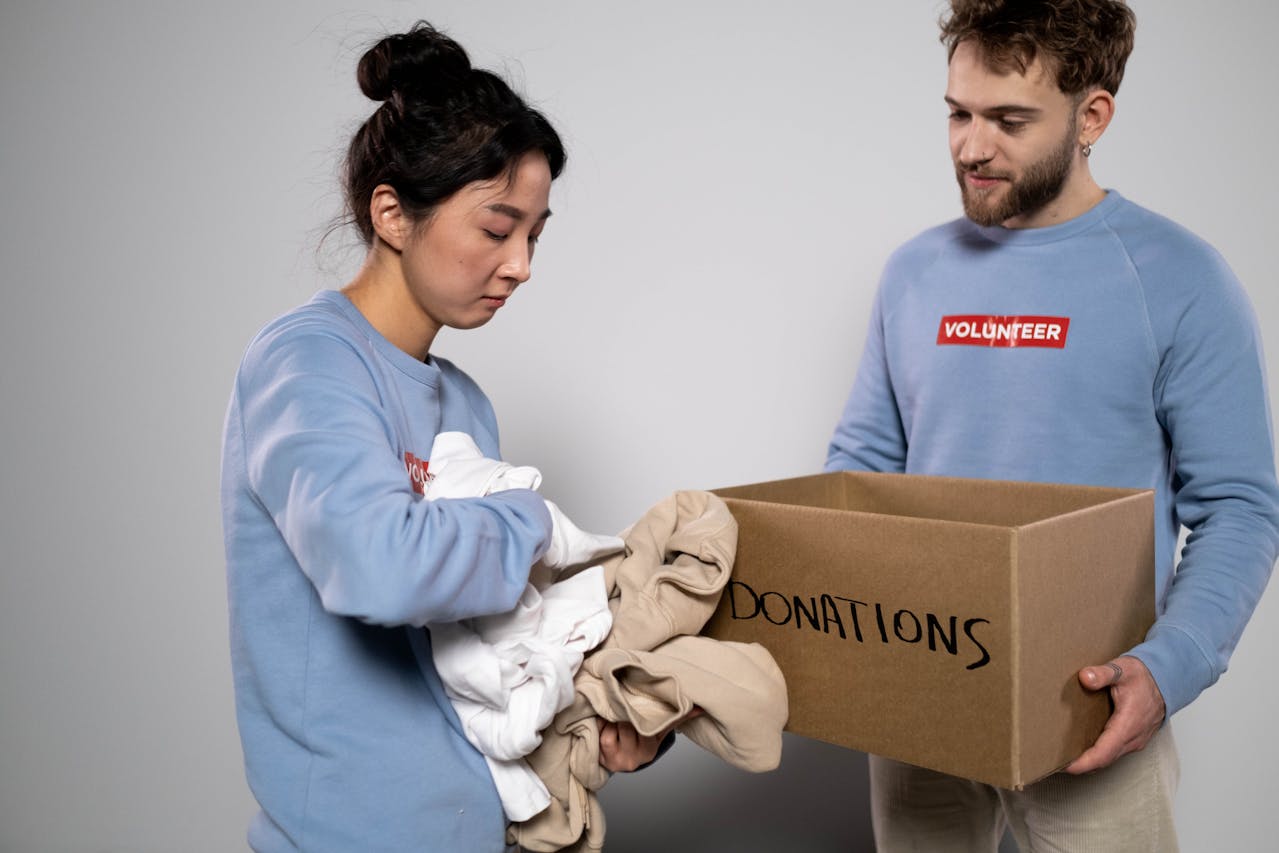How to be Charitable
Charity emanates from empathy, and it is one of the most important values that children should grow with as they straddle through childhood to adulthood. Charitable giving can be learned from childhood, which can help children grow into responsible adults.

By teaching your children that they can do more with money than spend it on themselves, you encourage them to become more compassionate and caring. By participating as a family in volunteer and community activities, you help your children develop empathy and a sense of responsibility to others. Your children will realize they have the power to make life better for others. Because children learn through modeling behavior, you have to do more than write a check to charity. You need to show your children what it means to help others. Modeling charitable behaviors, including volunteerism, can jump start your child’s empathy and desire to help others.
Teach your child that there are many unfortunate and poor people in this world. Some do not even have enough to eat, let alone have a party. The best way to feel for them is to put ourselves in their shoes. A great way to help your child understand charity is to let him or her feel and understand what it means to give to others.
Explain that sometimes when we deprive ourselves of something however small and give it to others who need them, the joy it brings is tremendous, not only to the person who receives but to the giver as well. You can also encourage your kids to a separate saving dedicated just to donations and charity related activities.
It is an important lesson that children need to learn, to give. The younger a child is when they learn this, the easier it will be to incorporate it into their entire lives.
A child growing with empathy, charity, and volunteering will be empowered to:
- Know how to collaborate with others doing similar things of interest
- Learn how to walk in others’ shoes by feeling their needs or lack
- Learn how to help others in an organized manner
- Learn how to keep charity at the central part of their financial literacy journey.
Some easy ways to get your kids started:
Toys
Most kids have way more toys than they will ever play with, and they certainly will not miss a few. Get them to pick out toys that they want to give to a child who doesn’t have any. Make sure they know that these children do not have what they have. It is important that they pick out the toys themselves with a little encouragement if necessary.
Clothes
Most kids have clothes that they have outgrown and that they will no longer need. Encourage them to sort out these clothes and shoes and place them in a box and give them to other kids that do not have clothes and shoes.

School
There are programs out there for children who will not be able to get school supplies they need. Basically, you buy a backpack and fill it with school supplies for a certain age group. The bigger stores in our community all have lists of what the students will need, from elementary to high school.
Christmas
Similar to the backpack program, at Christmas there is a shoebox program. These shoeboxes go to less privileged areas and again have a recommendation as to what should be in them. Brushes, toothbrushes, pencils, crayons and coloring books, or pens and journals.
Birthdays
Kids receive a lot of presents and money during their birthdays. Of course, you can always donate this money to a charity as well, which is becoming more popular. Family still gets them presents which is always more than enough. This way it is easier for the parents of the children attending too.
These are only a few things that are out there for children to become aware that not everyone is as well off as them. That is what is important, getting them to realize that everyone needs to help those who are less fortunate than themselves.
If you want a teen to do something, rather than pushing it on them, the best way is for them to pick it up on their own. Teens like what they like, what their friends like and what the celebrities they follow like. It’s extremely difficult to tell a teen what to like or to try to advertise to a teen – they are just too smart for that.
We understand the importance of charitable giving and know that many parents want to raise kids and teens who have in interest in giving back.
Here are a few tips to get kids engaged in charitable activities;
- Start them from a young age
We all know that charity starts at home. There are plenty of opportunities to give right in your community. Take your kids to go play with the animals at a local animal shelter, donate used toys to an organization that can use them, visit the children’s hospital on holidays and take gifts for sick children. These are all simple ways to begin instilling the importance of philanthropy from a young age.
- Read About Other kids making a difference
Teens love to stay on trend and updated with what their friends and other kids their age are doing. Another great way to get your teens involved is to make them aware of the ways that other kids their age are making a difference.
- Get creative
Show your teens the many easy and fun ways to help around in the local community or on the larger scale. From having fun with disabled children, to taking candy and toys to the children’s hospital, there are a variety of ways to show they care.
- Offer to Match their Donations
Offer to Match your teens donations if they are raising money. This is a great way to bond as a family and to help out even more. For example, if your teen is selling handmade jewelry, you can offer to match her donations. Not only are you encouraging her to work even harder, but you are donating to the cause as well.
Why Give to Charity?
There are several of reasons why people would want to donate to a charity. Some are personal, and some are simply business related. Here are some reasons to donate to a charity.
- It helps to foster a better future for your community
Teaching kids the value of volunteering and community involvement is essential to building a strong community and protecting the future of local business. Teenagers need to learn the value of work-related skills and feel a sense of pride in their community for it to prosper. Contributing to local charity events helps to promote a stronger and more self-confident youth population.
2. Be part of a global commitment to sustainability.
Charity organizations create projects that clean up neighborhoods and promote environmental awareness. Everyone including kids needs to be part of the growing movement to support sustainability in order to save our planet from further human damage.
3. Feel a sense of pride.
Donating to a charity makes you feel proud of who you are.
4. It provides social interaction opportunities.
Humans need to have some social interaction in order to survive. Being part of a charity support program offers ample opportunity to volunteer and participate in charity events. It is a great way to build lifelong friendships and build social networks.
5. It just makes business sense.
From a business perspective, donating to a charity has a great deal of marketing and promotional value. One of the best ways to promote a new product and create a buzz about it, is to offer free samples at a huge community or corporate charity event. Not only will you open your business up to your community, but you could also possibly create corporate partnerships and/or sponsorships.

